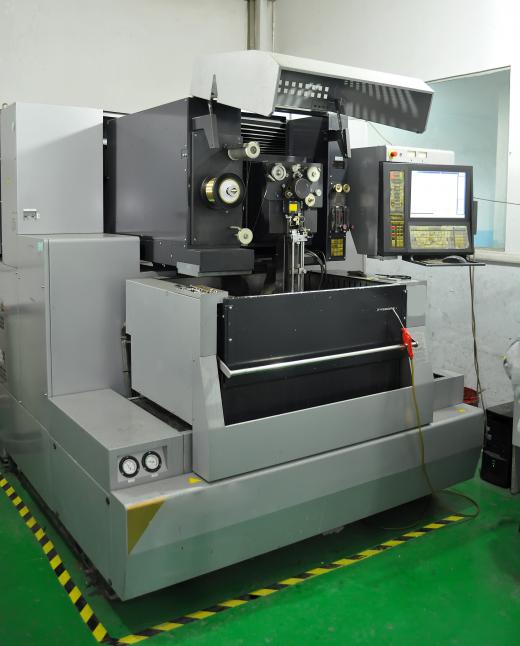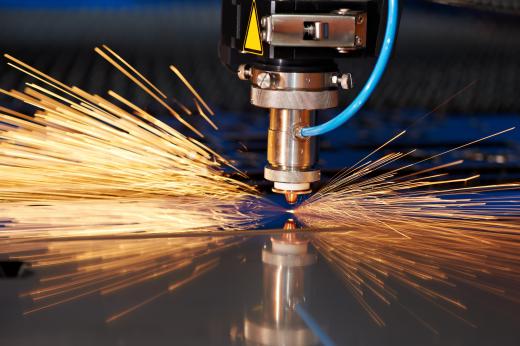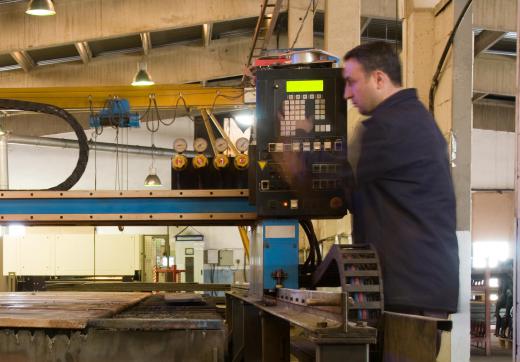A computer numerical control (CNC) machine tool is a machine that creates tools and parts via automated computer controls. All CNC machine tool units are automated with computer-manipulated parts; there are no manual CNC units. Most CNC machines are combined with design programs to further automate the process and ensure all aspects of the tool creation are accurate and controlled. While CNC machine tool units are known for accuracy, they can create incorrect cuts if the parts wear.
With all CNC machine tool units, the cutting measurements and instructions are entered via a computer. Unlike a manual machine tool, with which the user manually drills holes or makes cuts, using a CNC machine is more about understanding code. The coding used in CNC machines is highly sophisticated, making the use of CNC machines very specialized to technically adept operators.

This has changed the environment of creating parts. In the past, using machine tools was about knowing how to work with the material by hand and making all the cuts without the aid of a computer. The CNC movement has changed the tool-creating environment and forced operators to have more technical knowledge to use the machine tool.
When CNC machine tools were first created, they did not have program support. This meant all cuts and measurements had to be programmed from a computer while the operator attempted to reference a tool design. To automate the CNC machine tool process, software support has been added to most CNC machines.

There are two branches of software that CNC machines support: computer-aided design (CAD) and computer-aided manufacturing (CAM). Both of these programs are similar, because both are made to create parts and control processing of machine tools. CAD is more about designing the part, while CAM is more about controlling the processing machine. When a part is made in one of these programs, the CNC machine tool takes the measurements and any other information, and then accurately produces the part.

CNC machine tools are known for extreme accuracy, much better than what a human hand can achieve. They can also replicate the same part in high volume. If the parts begin to wear, the cuts may become inaccurate and the parts will not look the same, or the parts will look warped from their original design. Parts must be constantly maintained or further damage can occur to the CNC machine tool, eventually leading to it being inoperable.
